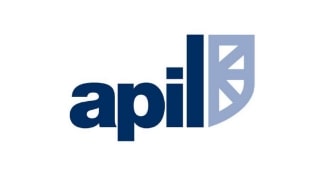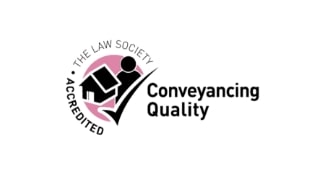
10 common mistakes by employers when disciplining employees
By Tamara Barbeary & Sunny Rafaeli
Disciplinary procedures can be difficult for employers to get right but getting the process wrong can be damaging to business, costly and can result in potential employment tribunal claims.
We have identified 10 common mistakes that employers make and should avoid making when disciplining employees:
1. Not using proper procedures early on to deal with issues before they escalate
Employers often fail to deal with issues regarding misconduct early on. There are a variety of reasons for this such as wanting to avoid confrontation, being too busy, not having the resources, lack of knowledge and/or clear policies. However, not only does this fail to correct bad behaviours that are damaging to business, but it can also lead to a general lowering of acceptable standards and/or performance and greater issues further down the line. Once matters escalate and the employer decides to take action, employees are also much more likely to suspect that the alleged misconduct is not the real reason for the dismissal where the employer has never previously picked them up on it.
The ACAS Code of Practice on Disciplinary and Grievance Procedures and an employer’s own policies should be followed to avoid a finding that any eventual dismissal arising from the alleged misconduct is procedurally unfair.
2. Not making the allegations of misconduct clear or failing to provide evidence to back up the allegations
Employers often fail to clearly set out the alleged misconduct to the employee and do not provide the employee with all the evidence to back up the allegations in advance of the disciplinary hearing. This leaves the employee unprepared for the hearing and if the employee is not given the chance to prepare and present their case, the employer will not have all the evidence to make an informed decision. Therefore, if the employer subsequently decides to dismiss the employee, they may be found to be acting unreasonably in treating the potentially fair reason as sufficient to dismiss, leaving them exposed to a claim for unfair dismissal.
3. Not warning the employee at the outset of the possible consequences of disciplinary action
Employers often fail to make the employee aware of the possible consequences of disciplinary action from the outset, which then makes it difficult to argue that any subsequent dismissal is procedurally fair. Making the employee aware of the possible consequences of disciplinary action means that it will not come as a surprise to them if dismissal is the result. Importantly, this will give the employee a chance to improve (unless the alleged conduct may result in summary dismissal) and prepare appropriately for any disciplinary hearings. It will also give them fair warning that they made need to find new employment if their conduct does not improve or they are summarily dismissed.
4. Allowing past grievances to impact on decision making
Where an employee has previously raised a grievance and misconduct allegations are then made against that employee, an employer should deal with the allegations of misconduct in a fair and impartial way and not allow an employee’s previous complaint cloud its judgement.
Failure to act in a fair and transparent way (or the appearance that it is not), may expose employers to a claim for victimisation under the Equality Act 2010, whistleblowing detriments and/or unfair dismissal (where the employee is dismissed for the misconduct) because the employee is likely to believe that the reason they have been disciplined and dismissed is not because of their conduct but because they raised a grievance or made a previous claim.
5. Making assumptions and pre-empting the outcome
Where there is alleged misconduct by an employee, employers often pre-empt the outcome at the beginning of the process, rather than when all facts are established, and mitigation is considered. While there will be some cases where the misconduct is so obvious and serious, it will be reasonable to recognise that dismissal may well be the outcome, but this does not avoid the obligation on an employer to follow a fair procedure before a final outcome is decided.
Proper consideration should be given to evidence that tends to prove an employee’s innocence or mitigates the wrong. Ultimately, this can only happen when a fair procedure is followed, and the matter is not treated as an “open and shut case”.
6. Unreasonable suspensions during disciplinary investigations
Employers need to ensure that they have reasonable and proper cause for any suspension and consideration should be given as to whether there is an alternative to suspension. Employers should be aware that most disciplinary procedures will not require suspension. If there is no reasonable and proper cause for suspension, the employer risks breaching the implied term of mutual trust and confidence and is exposing itself to a claim for wrongful and unfair dismissal.
If the employer decides that suspension is required, any suspension period should be kept as short as possible, the decision to suspend should be regularly reviewed and the reason for suspension should be clearly explained to the employee. Also, an employer must continue paying the employee whilst they are suspended (unless there is a contractual right not to pay the employee). Otherwise, the employee may have a claim for unlawful deduction of wages.
7. Not using the appropriate people to conduct the different stages of the disciplinary process
Where possible, employers should try to ensure that different people conduct the investigation, disciplinary hearing, and appeal stage. Where the employee has been suspended, it is also preferable in a larger organisation for the person that took the decision to suspend the employee not to conduct the disciplinary hearing.
Of course, it will not always be practicable to have different people dealing with each stage of the disciplinary process, particularly in smaller organisations. Ultimately, employers need to ensure they have carried out a fair disciplinary procedure and this entirely depends on the specific facts of each case. We would advise employers to seek advice where appropriate.
8. Not informing the employee of their right to be accompanied at a disciplinary hearing
An employee has a statutory right to be accompanied at a disciplinary hearing by a work colleague, trade union representative or an official employed by a trade union. This right arises when an employee is invited by their employer to attend a disciplinary hearing and makes a reasonable request to be accompanied. What is reasonable will depend on the circumstances of each individual case.
It is good practice for employers to advise the employee of the right to be accompanied in the invitation to attend the disciplinary hearing. Those who do not give their employees the right to be accompanied may be liable for 2 weeks’ pay (subject to the statutory cap on a weeks’ pay, currently £544) and/or render the disciplinary process unfair.
9. Not documenting everything
Employers who may have conducted a thorough and fair procedure when disciplining an employee, often fail to produce sufficient written evidence to support it. Employers will always be in a much stronger position if clear and accurate records are kept of any disciplinary matters. This includes notes on initial discussions, investigations, evidence, hearings, and decisions. The more contemporaneous the notes, the easier it will be to recollect events and decisions taken at the time. Records kept should be clear and concise, bearing in mind that it may be necessary not only to refer to them, but also to produce them during the course of any subsequent disciplinary hearing or tribunal proceedings.
10. Not giving the employee the right to appeal
Employers should treat the appeal as an essential part of the disciplinary process. Employers must provide the employee with the opportunity to appeal any disciplinary decisions when the outcome is communicated to him/her. Also, the employee should be advised of this right of appeal, to whom such appeal should be directed and any relevant time limits.
The way in which an employer treats the appeal process will help determine how reasonable the employer has acted when it comes to dismissing the employee and this will ultimately help determine whether the dismissal was fair.
DISCLAIMER: The content of this article has been prepared for informational purposes only. The content does not constitute legal advice, nor does it give rise to a solicitor/client relationship. Specialist legal advice should be taken in relation to specific circumstances.
If you do require specific assistance in relation to dismissing an employee or any other employment related matters, please contact our specialist team here at Lennons.
For our article on the 10 common pitfalls for employers when dismissing employees, please click here












































